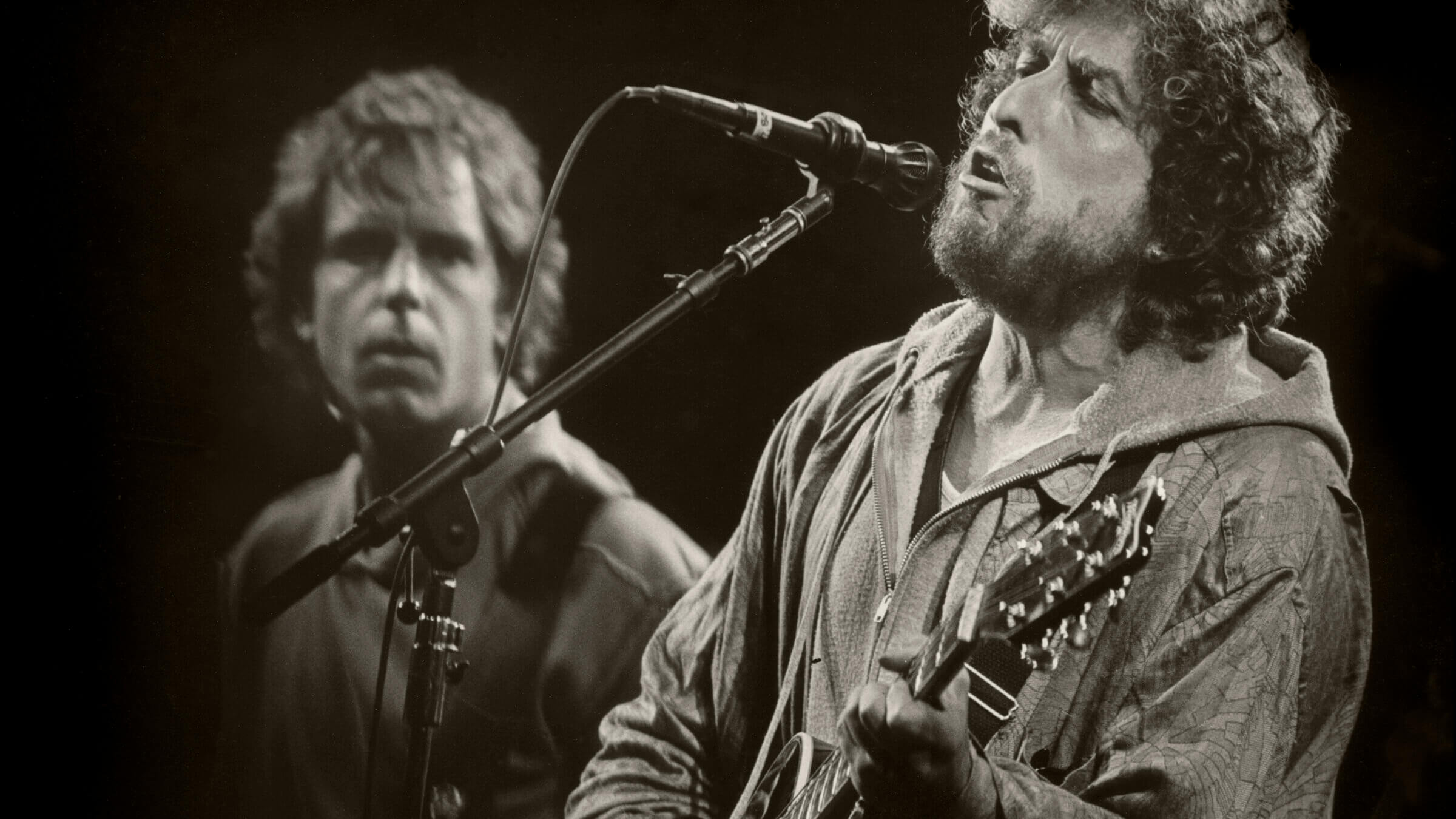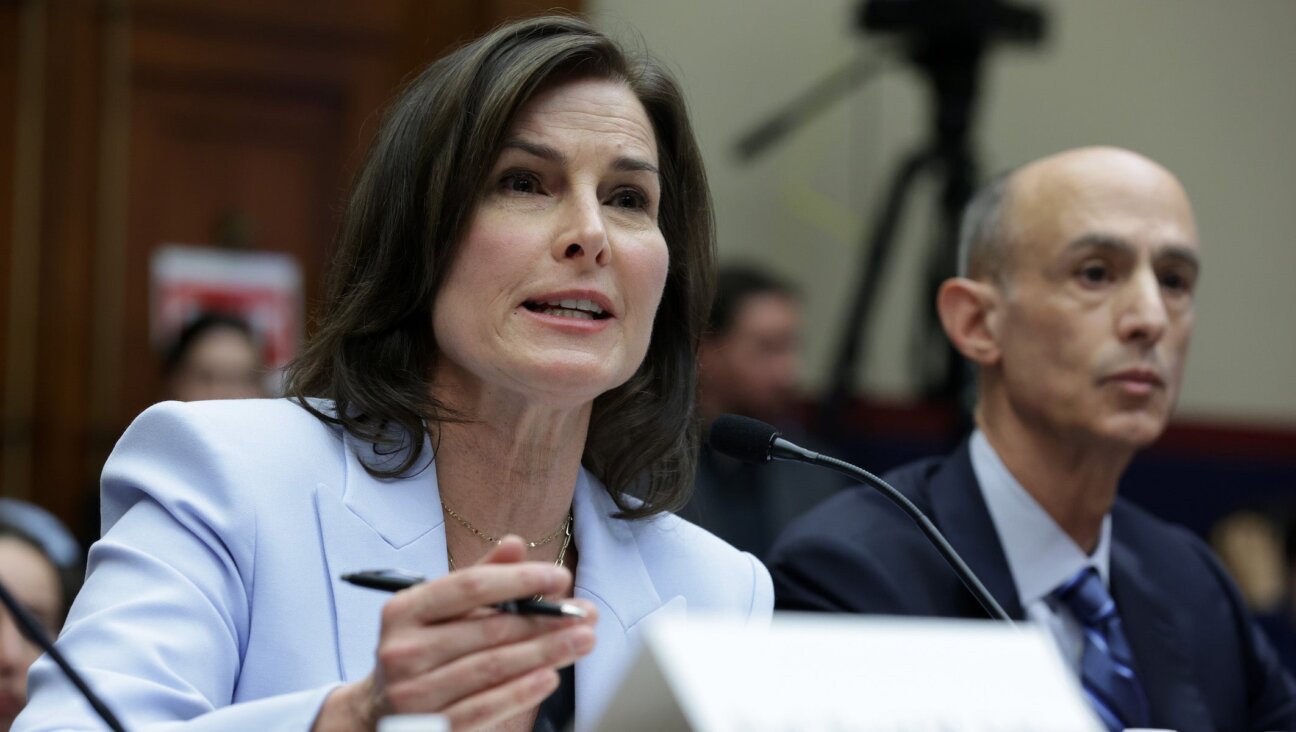Could Bob Dylan be auditioning a new album concept in Japan?
Theories abound as to why the 81-year-old artist has started covering Grateful Dead tunes

The Grateful Dead helped to revive Bob Dylan’s career in the 1980s. Is he returning the favor now? Photo by Getty Images
Over the course of the past week on tour in Japan, Bob Dylan has performed a version of the Grateful Dead’s “Truckin’” and attempted their song “Brokedown Palace” several times, along with a cover of Buddy Holly’s “Not Fade Away,” which was a staple of the Grateful Dead’s live shows. (Holly has also been one of Dylan’s foremost idols since he was a teenager.)
This dive into the Grateful Dead songbook is not unprecedented. In the early 1990s, Dylan peppered his setlists with Dead classics like “Alabama Getaway” and “Friend of the Devil.” On some level, this could be seen as payback — to no small extent, the Grateful Dead and its offshoot, the Jerry Garcia Band, were veritable Bob Dylan cover bands in concert. Dylan even toured with the Dead for a half-dozen shows in 1987, with the group acting as his backup band, as documented on the aptly titled 1989 live album, Dylan & the Dead.
Afterwards, Dylan spoke of how Jerry Garcia inspired him to find his way back into performing songs from his considerable back catalog, and Dylan began his so-called Never Ending Tour in 1988. He has been a road warrior ever since, averaging about a hundred concerts a year for the past 35 years. At age 81, Dylan shows no signs of slowing down.
While primarily known for recording and performing his own songs, over the course of his 60-year career, Dylan has also recorded and performed hundreds of songs that were written by others. His debut album, 1962’s Bob Dylan, consisted almost in its entirety of traditional folk, blues and country songs. Dylan returned to that formula in the early 1990s with two solo acoustic albums featuring old roots-music numbers. In the interim, Dylan recorded a near-handful of albums of pre-rock pop standards and two early 1970s albums primarily featuring songs by contemporaries including Joni Mitchell, Paul Simon, Jerry Jeff Walker and Gordon Lightfoot.
Dylan has also peppered his concerts with versions of songs by Leonard Cohen, Don Henley, Bruce Springsteen, Hank Williams, Jimmie Rodgers, Little Richard, Muddy Waters, Chuck Berry and the Beatles, to name just a few. When Warren Zevon went public with the news that he was dying from a terminal illness, Dylan began regularly including Zevon songs in his setlists. After his friend and musical collaborator George Harrison died, Dylan paid tribute to his former Traveling Wilburys bandmate with a live version of Harrison’s Beatles hit, “Something.”
Dylan pretty much does whatever he wants to do whenever he wants to do it. Even before he garnered a Nobel Prize for literature, Dylan enigmatically answered to his own muse. Any explanations he might have offered to interviewers along the way about why he chose a song or a new musical or spiritual direction were instantly suspect; from the very beginning, Dylan has been a master dissembler, and anything he said or wrote had to be taken with not a grain but a whole shaker of salt.
Still, fans and Dylanologists cannot help but wonder if Dylan has some hidden agenda in suddenly interpolating Grateful Dead and Dead-adjacent songs into his setlist, especially after several years of playing almost exclusively songs from his most recent album, 2020’s Rough and Rowdy Ways, with a few of his better-known classics tossed into the mix for good measure. Following the Warren Zevon model, some wonder if the nod to the Dead’s musical legacy is spurred by illness of one of the dwindling number of original band members, possibly Bob Weir or Phil Lesh.
My friend and fellow Dylan author Harold Lepidus clued me into another theory making the rounds: that Dylan is preparing to record (or already has recorded) an album of rootsy, rock-era material by his contemporaries. At first I dismissed this notion out of hand, since covering a few Dead songs in concert does not equate to a full album of rock covers. But the more the idea sat with me, the more I became intrigued, to the point that I have created my personal wish list for what such an album might contain.
I base my proposed setlist for what we will call The Philosophy of Modern Song … Oops! That’s the title of Dylan’s most recent book, in which he writes about 66 songs, most from the pre-rock era. But let’s imagine he wants to expand the scope of his survey of modern song to include those by artists who, if not exactly peers (after all, how many artists can be considered Dylan’s “peers”), are at least his close contemporaries, and to some extent or another have labored in the same musical vineyards. Dylan has already performed a number of these songs in concert over the years, but maybe he wants to pay tribute to the songwriters he most respects by recording definitive versions of their songs.
And so, I offer my proposed set list for Bob Dylan’s next album, The Philosophy of Modern Song, Vol. II:
“Brokedown Palace” by the Grateful Dead — I must admit I had never heard this song. Nor do I come close to being a fan of the Dead. But some of my best friends appreciate them, and Dylan (unaccountably to me) feels a kinship with them. Since “Brokedown Palace” has been the song he has played the most this past week, let’s assume that will be the leadoff track to Dylan’s imaginary covers album.
“Not Fade Away” by Buddy Holly – Dylan has spoken about seeing Buddy Holly in concert just days before the latter’s fateful, fatal plane crash. After winning the album of the year award at the Grammy Awards ceremony in 1998 for Time Out of Mind, Dylan told the audience, “[W]hen I was 16 or 17 years old, I went to see Buddy Holly play at Duluth National Guard Armory, and I was 3 feet away from him … and he looked at me. And I just have some sort of feeling that he was — I don’t know how or why — but I know he was with us all the time we were making this record in some kind of way.”
“Accidentally Like a Martyr” by Warren Zevon – This was one of several Zevon tunes that Dylan incorporated in his concerts after the songwriter publicly announced his medical death sentence. (Others were “Mutineer,” “Boom Boom Mancini” and “Lawyers, Guns and Money.”) “Accidentally” contains the enigmatic idiom, “time out of mind,” which provided the title to what was then considered Dylan’s late-career “comeback” album. That was before anyone knew Dylan’s career would continue another quarter-century, well into his 80s.
“All Things Must Pass” by George Harrison – Of all the Beatles, Dylan had the closest relationship with Harrison. The two spent time together in Woodstock, New York, in the late 1960s, and met again in the early 1970s when they snuck into a New York City recording studio and loosely jammed on a number of tracks, including “Da Doo Ron Ron” and “Yesterday,” as heard on the recent collection, Bob Dylan: 1970. But Harrison’s debut solo album announced to the world that he had found a new songwriting partner in his post-Lennon & McCartney career, with the leadoff track, “I’d Have You Anytime,” co-written by Dylan. The title track, however, was inspired by Harrison’s musical love of Dylan’s sidemen, The Band. It would be lovely to hear Dylan reflect this back upon the rest of us.
“Perfect Day” by Lou Reed – Lou Reed supposedly had negative things to say about Dylan’s work, but for all those who have ears, Reed was clearly influenced by Dylan’s writing style. And Dylan clearly liked Reed – he invited him to take part in the 30th Anniversary Concert Celebration at Madison Square Garden in 1992, where Reed performed a torrid version of the Dylan rarity, “Foot of Pride.” I’d love to hear Dylan croon one of Reed’s prettiest songs; if not “Perfect Day,” then “Pale Blue Eyes” would do just fine, especially given the color of Dylan’s own orbs.
“Lost in the Flood” by Bruce Springsteen – When John Hammond signed Bruce Springsteen to a deal with Columbia Records, he thought he was getting a musician in the vein of Bob Dylan, whom he had signed to the same label a decade earlier. Springsteen’s earliest songs, including this one from his debut album, Greetings from Asbury Park, N.J., were full of voluminous wordplay and hepcat jive that recalled Blonde on Blonde-era Dylan. This number was one of several piano-based tunes Springsteen favored in the early 1970s, and seeing as Dylan has forsaken guitar for piano for the past decade-plus, this seems a suitable tune for Dylan to cover, paying tribute to the artist who has probably given the most induction speeches for and verbal tributes to Dylan.
“Where Are We Now?” by David Bowie –Dylan supposedly did not think much of Bowie, even though the latter wrote at least two songs paying tribute to his idol, including “Song for Bob Dylan” from the 1971 album Hunky Dory and “(You Will) Set the World on Fire” from the 2013 album, The Next Day. Dylan also liked Bowie’s guitarist Mick Ronson enough to draft him into his Rolling Thunder Revue band, which included a veritable guitar army (including Roger McGuinn, T Bone Burnett, Steve Soles, and Bob Neuwirth). This nostalgic ballad, in which Bowie looks back on his days in Berlin, is tailor-made for Dylan to croon.
“Lost in the Supermarket” by The Clash – The story goes that a young Jakob Dylan was a huge fan of the Clash and made his father attend a concert with him when the British punks played Los Angeles. Père Dylan apparently became an instant convert and he performed the title track to their London Calling album at least once in concert. I’d like to hear Dylan tackle this anti-materialist, anti-consumerist number from the same album.
“Ring of Fire” by Johnny Cash – Johnny Cash and Bob Dylan were a two-man mutual admiration society, appearing on each other’s albums, singing each other’s songs, and appearing on stage and on TV together. While Cash didn’t write “Ring of Fire” (his wife, June Carter, co-wrote it with Merle Kilgore), it was one of Cash’s signature tunes, and the metaphor powering the song is totally in Dylan’s wheelhouse.
“People Have the Power” by Patti Smith – Patti Smith and Bob Dylan have a deep, abiding history going back at least as far as 1975, when Dylan invited her to join his incipient Rolling Thunder Revue traveling musical festival. Smith had to decline, as she was already tied up with a fully booked concert tour of her own in the wake of the release of her groundbreaking debut album, Horses. But the two remained friends and, in 1995, a year after Smith lost both her husband, Fred “Sonic” Smith, and her brother, Dylan pulled her out of her funk by inviting her to open a string of live dates for him. Years later, in 2016, when it came time for the Nobel Prizes to be awarded at a ceremony in Stockholm, Dylan sent Smith in his stead, and she performed a touching, emotional rendition of his “A Hard Rain’s a-Gonna Fall.” Smith’s populist anthem, “People Have the Power,” has pretty much displaced Dylan’s catchall singalong, “Blowin’ in the Wind.” It would be great to hear his take on hers.






















